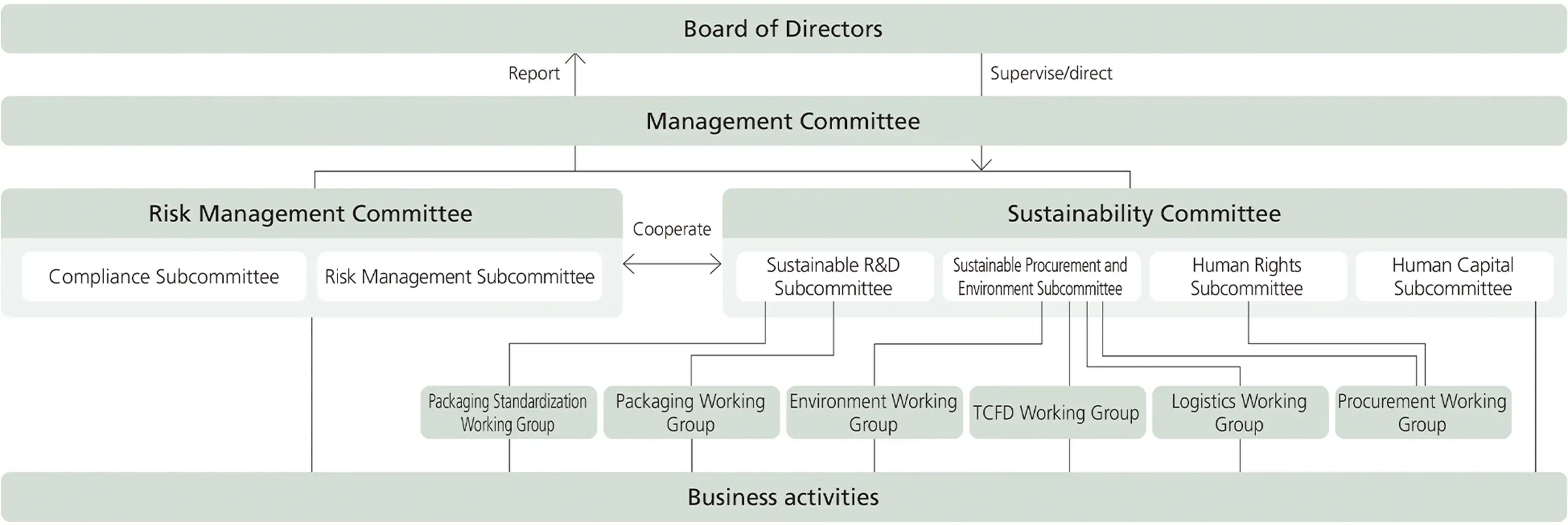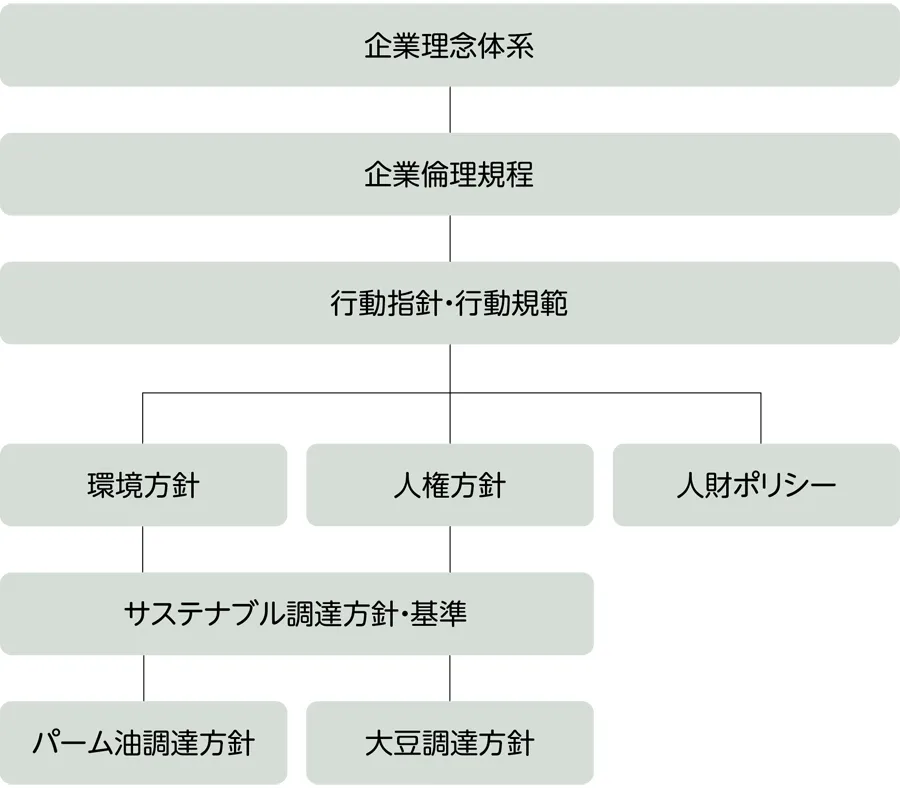Sustainability promotion system
Policy
J-OIL MILLS regards environment, society, and governance (ESG) as an evaluation index for corporate value, and conducts ESG Management that is linked to the company's long-term strategy and growth investment, and leverages the strengths of its own products and business to improve society and the environment. We will actively promote the creation and provision of value.
In order to realize our corporate vision of "Joy for Life ®︎-Bringing joy to the future by food," we will start with "oil," which is essential to our diet, and think about what we, as a group of experts, can do to create a rich and fulfilling life. We will initiatives to realize a sustainable society and lifestyle.
Promotion system
J-OIL MILLS has established Sustainability Committee, chaired by Member of the Board, as the foundation of an internal system to promote sustainability throughout the company. From April 2023, we will establish a new "Logistics Subcommittee" under the "Sustainable Procurement and Environment Subcommittee," and view the "2024 problem" as a company-wide issues, not just for the logistics department, and work toward realizing sustainable logistics. We have started to understand the actual situation and take improvement activities. Additionally, we believe that it is important to initiatives human capital, which forms the basis of corporate activities, in order to sustainably improve corporate value, and in July 2023 we established a new Human Division. We will continue to disseminate initiatives of this committee both internally and externally, and through engagement with stakeholders, aim to improve corporate value by resolving social issues.

(As of the end of July 2023)
Sustainability committee initiatives
| Main activity results in 2022 | Main activity goals for 2023 | |
|---|---|---|
| Environment |
|
|
| TCFD |
|
|
| Procurement |
|
|
| Product development |
|
|
| Human rights |
|
|
Sustainability-related policies
As guidelines for promoting sustainability, our company has established various policies related to sustainability based on related laws and international norms.
The contents of the policy are reviewed as appropriate depending on social conditions and other factors.

Education
In order to promote sustainability throughout our Group, we regularly conduct sustainability training for employees (including executives, temporary employees, contract employees, and part-time employees).
In fiscal 2022, we conducted sustainability training via e-learning for employees of Group companies in Japan and overseas. The e-learning participation rate was 91%. In the post-training survey, participants said that they had a deeper understanding of sustainability and that it gave them an opportunity to reconsider whether there is work that they can contribute to in their own department. We will continue to strive to increase understanding and promote sustainability throughout the company.
2022 implementation details
| Theme |
|
| Supported language | Japanese/English |
| Target audience | All employees working in our Group (including executives, temporary employees, contract employees, and part-time employees) *Employees who do not have personal PCs will take the voluntary course at general meetings at each location. |
